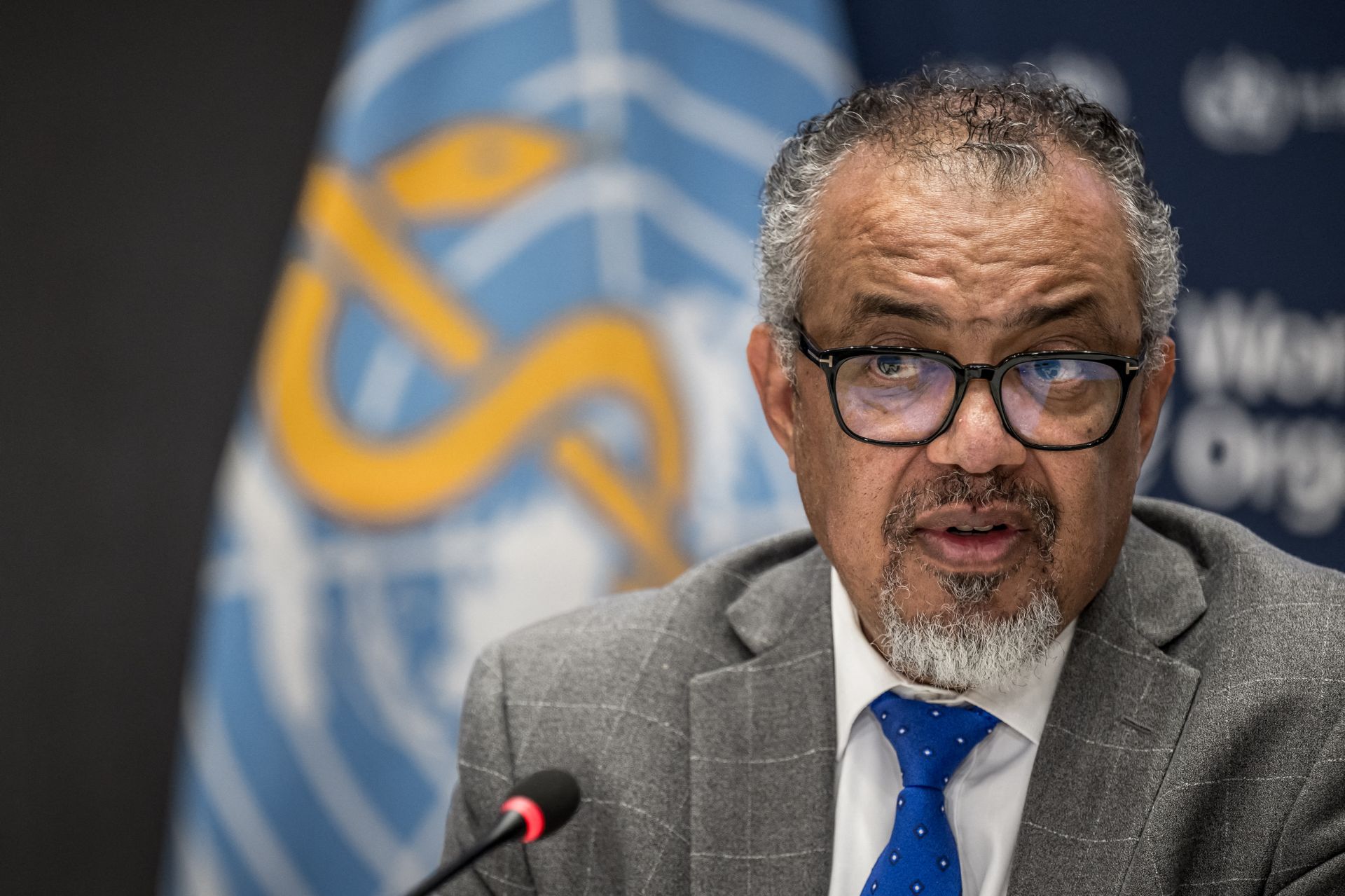- Home
- Middle East
- WHO Reviewing 'Priorities' Ahead of US Withdrawal

WHO Director-General Tedros Adhanom Ghebreyesus looks on during a press conference with the Association of Accredited Correspondents at the United Nations (ACANU) at the World Health Organization's headquarters in Geneva, on December 10, 2024. ©Fabrice Coffrini / AFP
The World Health Organization said Friday it was reviewing its priorities ahead of the withdrawal of its largest donor the United States, noting the agency provides vital services to protect against health threats.
The agency was "freezing recruitment, except in the most critical areas", and was dramatically cutting back on travel expenditures, the organization's chief Tedros Adhanom Ghebreyesus said in a letter sent to staff on Thursday and seen by AFP on Friday.
"All meetings must be fully virtual by default unless exceptional approval is sought and granted," he wrote, adding technical support missions should be limited to the most essential
President Donald Trump on Monday signed an executive order directing the United States to withdraw from the WHO, a body he has repeatedly criticised over its handling of the Covid-19 pandemic.
"This announcement has made our financial situation more acute, and we know it has created significant concern and uncertainty for the WHO workforce," Tedros said.
"We are reviewing which activities to prioritize with a reduced resource envelope."
Tedros stressed that the UN health agency hoped the new administration would reconsider its decision, noting they were open to dialogue on preserving the relationship.
'WHO protects US'
WHO spokesman Christian Lindmeier warned the US withdrawal would be a mistake.
"It's a concern for global health -- much more for global health than for WHO alone," he told reporters in Geneva.
He pointed out that the agency "provides critical information to the US" and other member states "on outbreaks and emerging health threats".
"WHO protects the US with a sophisticated health intelligence system that works to detect, characterise and assess threats in real time."
He pointed in particular to the bird flu outbreak (H5N1), which has infected dozens and claimed one life in the United States, adding that concerns had already been raised that important data might not be shared.
Lindmeier highlighted that the WHO was "in constant contact with member states" about health issues, including outbreaks.
"If that went silent from the US side, that would be an issue," he said.
WHO 'ripped us off'
The US withdrawal would also deal a major blow to WHO's budget and its operations.
In its last complete budget cycle, for 2022-23, the United States pitched in $1.3 billion or 16.3 percent of the WHO's $7.89 billion budget.
Lindmeier said that under the guidelines laid out by the US Congress when the country first joined the WHO, a withdrawal can take place a year after official notification, and after "the arrears have been paid in full".
He noted that Washington had yet to pay the sum of $130 million in membership fees -- called assessed contributions -- owed for 2024, nor the $130 million it owed for 2025, "which would be due now".
On Monday, Trump said: "World Health ripped us off," noting how Washington was paying more than Beijing.
"The WHO continues to demand unfairly onerous payments from the United States, far out of proportion with other countries' assessed payments," the executive order said, citing China's bill.
China's annual membership fees for 2024 and 2025 are $88 million.
With AFP
Comments